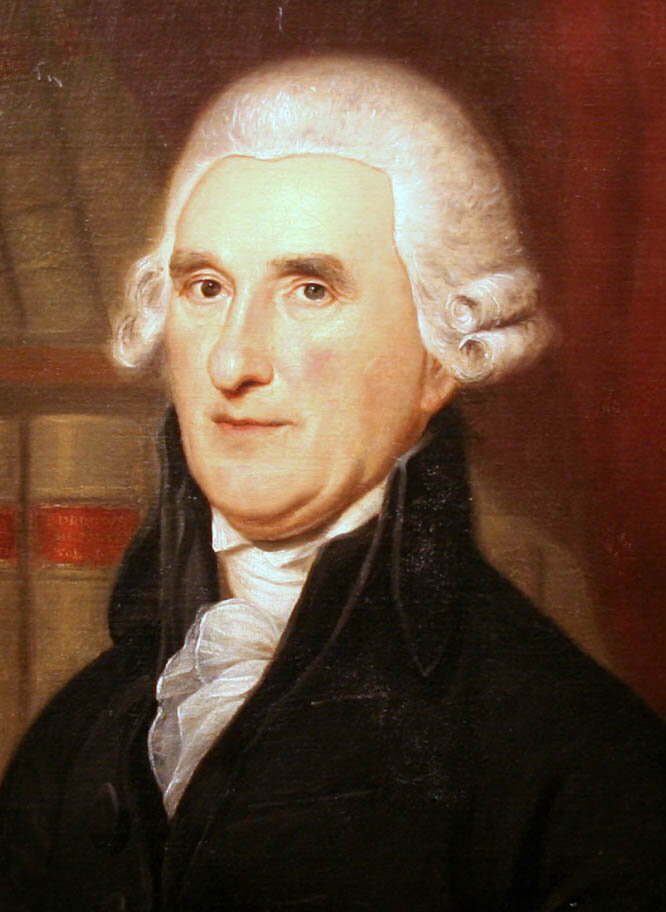
Thomas McKean
Delaware
The Irish are known to be blunt and, at times, feisty folk. And the Scottish are known as a hearty people, able to persevere through hardship. For Thomas McKean, these traits certainly rang true. The son of Irish and Scottish ancestry was surprisingly a successful lawyer during the American Revolutionary period. The wonderment was present due to his reputation of being “lofty and often tactless, [which] antagonized many people.” But the man, often considered a loner, was one of America’s chief judicial architects who worked tirelessly in multiple states for the cause of establishing the nascent republic.
On March 19, 1734, Thomas McKean was born in Chester County, Pennsylvania to William McKean and Letitia Finney. He was educated under the watchful of Rev. Francis Allison who also educated two other signers of the Declaration of Independence (George Read and James Smith). In the care of Rev. Allison, young Thomas was instructed in moral philosophy, history, and literature. He was also schooled exhaustively in the Latin and Greek classics. After completing his basic studies, he went to Newcastle, Delaware to study law under his cousin, David Finney.
Thomas McKean was admitted to the Delaware bar when he was only 20. His career’s work would soon include the states of Pennsylvania and New Jersey. His resumé is full of positions he held at the local, state, and federal levels. There were times when he held positions concurrently in two states. In his early career, he practiced in both the city and county courts of Philadelphia. A year later, he was admitted to the bar of the Pennsylvania supreme court and appointed clerk by the house of assembly. These were positions typically held by men older than he was at the time. At the apex of his career, he was a Continental Congressional delegate (1774-83), while also serving as chief justice of Pennsylvania (1777-79), president of Delaware (1777), and governor of Pennsylvania (1799-1808).
It was during Mr. McKean’s time as a delegate at the Continental Congress that a unique situation arose for the Delaware delegation. Mr. McKean was in favor of the resolution for independence, but George Read was not. Due to the deadlock between the two present delegates, they had to send word to Caesar Rodney to travel to Philadelphia in order to break the tie. Mr. Rodney rode all night through treacherous weather and on muddy roads to arrive on July 2, 1776 and cast the deciding vote for independence. This is what led to Delaware’s vote supporting the resolution.
Mr. McKean’s impact extends to today in the operations of America’s legislative and judicial systems. During the Stamp Act Congress, he proposed each state’s voting power be equal. In time, the Continental Congress implemented his suggestion and his proposal became policy in the U.S. Senate when it was codified in the U.S. Constitution. In regards to the judicial branch, he contended a court had the authority to strike a law passed by a legislature if upon review it was considered unconstitutional. This practice would be formalized later by the U.S. Supreme Court as the doctrine of judicial review.
Thomas McKean also played a role in persuading the Pennsylvania Ratification Convention to ratify the proposed U.S. Constitution. He said of it, “The law, sir, has been my study from my infancy, and my only profession. … and from all my study, observation and experience, I must declare that from a full examination and due consideration of this system, it appears to the best the world has yet seen.”
Mr. McKean retired from public life in 1812 and lived out his remaining days in Philadelphia. He died on June 24, 1817.
Thomas McKean lived to be 83 years of age.


